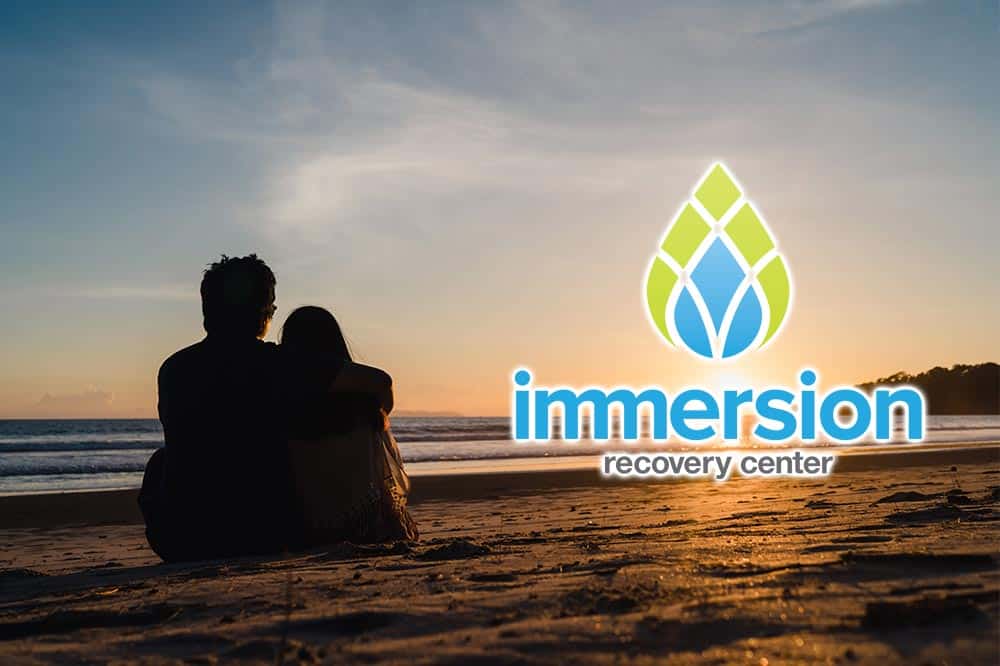How to Help an Addict
What is Enabling & How Can I Avoid It?
What is Enabling & How Can I Avoid It?
What is an enabler? An enabler is a person who (either intentionally or inadvertently) contributes to the exacerbation of a serious problem. In terms of alcoholism and drug addiction, an enabler is a person who intentionally or unintentionally supports negative behavioral patterns that contribute to an individuals addiction. Enabling often hinders or slows down an individual’s ability to seek the professional help they need. In the recovery community the word “enabler” is heavily stigmatized. However, it is important to understand that the majority of people who engage in enabling behavior are completely unaware that they are preventing their loved ones from receiving adequate treatment. In fact, in most cases people who engage in enabling are only trying to help. At Immersion Recovery Center we have extensive experience working with the family members and close friends of clients who had the best intentions but accidentally ended up enabling their loved one. How can you tell if you are enabling someone you love, and what steps can you take to stop enabling someone once you have determined that you are?
About Enabling
The American Psychological Association defines enabling as:
- “A process whereby someone (i.e., the enabler) contributes to continued maladaptive or pathological behavior (e.g., child abuse, substance abuse) in another person. The enabler is typically an intimate partner or good friend who passively permits or unwittingly encourages this behavior in the other person; often, the enabler is aware of the destructiveness of the person’s behavior but feels powerless to prevent it.”
- “The process of encouraging or allowing individuals to meet their own needs and achieve desired ends. A therapist attempts to enable clients to believe in themselves, have the confidence to act on their desires, and affirm their ability to achieve.”
Notice that the first definition has negative connotation and the second definition is positive. When it comes to active addiction, enabling someone is generally not a good thing. If you are enabling someone you love it doesn’t necessarily mean that you are supportive of their behavior or that you are turning a blind eye to their addiction. It essentially means that you are unintentionally exacerbating the problem at hand by consistently lending assistance and failing to set and maintain solid personal boundaries.
We Are Here For You
Let Us Help You Heal
Our detoxification experience is second to none.
Learn how we can help by speaking with one of our Treatment Advisors today.
What Does Enabling Look Like?
Enabling an addict or alcoholic can take on many forms. Generally the families and loved ones of addicts and alcoholics don’t even realize their actions may be harming, not helping.

Enabling can look like:
- Financial Assistance – Continuously offering your loved one financial assistance even though you have a sneaking suspicion that your loved one is using the money you loan to support his or her habit. You might even know for a fact that the majority of the money you loan is going towards drugs and alcohol, but you fear that if you stop offering financial support your loved one might go without food or shelter (or other basic essentials).
- Making Excuses – Making excuses for the behavior of your loved one. Even though you might know that negative behavioral patterns are directly linked to substance abuse, you might excuse these behaviors and say things like, “He’s under a lot of stress right now, it’s only temporary.” Or, “She’ll be fine, it’s just a phase.” You might feel justified in defending your loved one and their substance use, but keep in mind that if a substance use disorder goes untreated it will only continue to get worse over time.
- Covering for the Addict – This could involve lying on behalf of the addict. For example, calling your loved one’s place of work and telling their boss they are sick when they are actually drunk.
- Setting Boundaries You Don’t Keep – Setting personal boundaries but failing to maintain these boundaries. If you have been dealing with an addicted loved one for an extended period of time, there is a good chance that you have repeatedly set boundaries and laid out ultimatums in an attempt to help. Perhaps you have told your loved one that if they don’t get help they can no longer live under your roof, or that if they don’t seek treatment you will no longer be able to offer them support. Boundaries are important, but they are rendered entirely useless if they are not maintained.
When it comes to dealing with an addicted loved one, it might seem easier to brush the issue under the rug. For example, if you notice that your spouse has been drinking excessively, you might avoid addressing the topic directly in order to avoid confrontation. Unfortunately enabling behaviors do nothing to move a person toward recovery or the help they desperately need. If you are confused about what to do, please contact us. Immersion Recovery has professional interventionists on staff who are experts at providing guidance to the families and loved ones of addicts or alcoholics.
Our Treatment Services Include
Empowering Your Loved One
You might be concerned about pushing your spouse farther away or upsetting them and making them angry. While this might seem like an ideal way to help the situation, brushing things off and avoiding the issue is only going to lead to an exacerbation of symptoms in the long run. It is important to remember that addiction is a progressive condition, and without professional intervention the associated symptoms will only continue to get worse over time.
When it comes to stopping these enabling behaviors and making the switch to empowerment, it is important that you take the necessary steps to help yourself first. This often means seeking the support of an addiction specialist or of a licensed therapist with a personal background in substance abuse and dependence. It is also a good idea to seek out the guidance of a support group like Al-Anon. Once you begin to empower yourself you will be more capable of empowering your loved one. Empowering someone does not mean picking up their slack or doing everything in your power to take care of the problems that repeatedly occur in their own lives. It means providing the person you love with the tools that he or she needs to succeed in sobriety.
Ready To Begin Your Treatment?
Let Us Help Your Family Heal
Our family therapy program is second to none.
Learn how we can help your family by calling a Treatment Advisor now.
Ways to Empower Your Loved One
- Providing your loved one with a list of recovery related resources in your community. This might include a list of 12-Step meetings, detox centers or residential inpatient treatment centers.
- Teaching your loved one the skills they need in order to succeed on their own. Of course, if an addictive disorder has progressed and become severe, it is unrealistic to think that you can teach your loved one to stay sober. What you can do is help point them in the right direction and offer them a list of potential treatment centers.
- Allowing your loved one to take responsibility for his or her own actions. Rather than excusing negative and self-destructive behavior, have an open discussion about how these behaviors are affecting you and the rest of your family. Avoid taking a blameful stance and always come from a place of compassion and understanding while getting your point across.
- Staging a professional intervention. If a substance abuse disorder has become moderate or severe, it might be a good idea to stage a professionally facilitated intervention. At Immersion Recovery Center we work closely with several licensed and experienced interventionists who work closely with the loved ones of people who repeatedly refuse treatment or who are in denial about the severity of the issue at hand. If you would like to be put into touch with one of these interventionists, contact us today.
Begin Healing Now!
Have A Call With One Of Our Treatment Advisors
Don’t Suffer Any Longer
Help Your Loved One
We understand that watching a loved one struggle with addiction is one of the most difficult things you will ever do. It can feel almost impossible to know what steps to take in order to help your loved one overcome addiction. You might feel backed into a corner and left with nowhere to turn. Many of our staff members have dealt with addiction themselves or have helped loved ones through the recovery process — we know where you are coming from. We are here to help. Please reach out for support. We are available 24/7.
Get Started Now
Give us a call 24/7
(888) 693-1604

Reviewed for accuracy by :
Susan Shirley
LMHC
Serving as the Inpatient Clinical Director at Immersion Recovery Center, Susan will work directly with staff members, clients, and family members to ensure the clinical program remains as effective and individualized as possible. Susan is no stranger to the fields of behavioral health and addiction. She has over 25 years of experience, working in an inpatient setting, an outpatient setting, acute stabilization and nearly all other settings in the realm of addiction recovery.






















